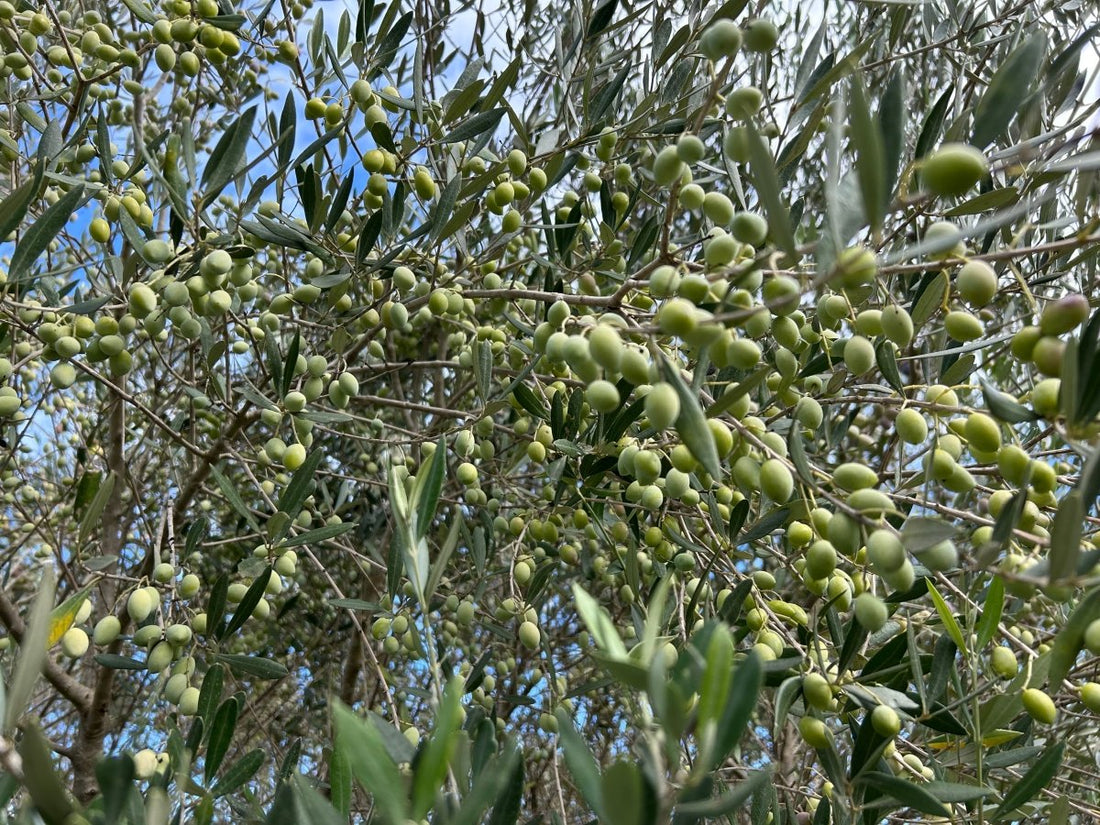
Which is Healthier: Butter or Olive Oil?
Share
When it comes to choosing between butter and olive oil, the decision often boils down to health benefits, culinary applications, and personal preferences. Let’s delve into a detailed comparison while exploring the unique properties of extra virgin olive oil.
Nutritional Profile
Butter is made from animal fats and is high in saturated fats. While saturated fats are not inherently harmful in moderation, excessive consumption is linked to increased LDL (bad) cholesterol levels and higher risks of cardiovascular diseases. Butter also contains small amounts of vitamins A, D, and E, but it lacks significant unsaturated fats or antioxidants.
Olive oil, particularly extra virgin olive oil (EVOO), is predominantly composed of monounsaturated fats, which are heart-healthy. EVOO is also rich in antioxidants like polyphenols, as well as vitamins E and K. These components make it a powerful ally in reducing inflammation, lowering LDL cholesterol, and increasing HDL (good) cholesterol. Unlike butter, EVOO has negligible saturated fat content, making it the healthier choice for most people.
Health Benefits
1. Cardiovascular Health: Studies consistently show that olive oil, especially extra virgin olive oil, supports heart health by reducing bad cholesterol and improving overall lipid profiles. Butter, on the other hand, contains high levels of saturated fats, which can contribute to arterial plaque formation if consumed excessively.
2. Anti-inflammatory Properties: EVOO contains polyphenols, which have anti-inflammatory and antioxidant effects. These properties help combat oxidative stress, a contributor to chronic diseases such as diabetes and cancer.
3. Weight Management: Both butter and olive oil are calorie-dense. However, olive oil, with its unsaturated fats, supports metabolic health and can be included in a weight management diet. Butter, due to its saturated fat content, may contribute to weight gain if consumed excessively.
Extra Virgin Olive Oil: A Superior Choice
Extra virgin olive oil is derived from the first cold pressing of olives, retaining its full nutritional profile and robust flavor. Its unrefined nature ensures that it is packed with antioxidants and polyphenols, which contribute to its numerous health benefits. EVOO is ideal for raw applications like salad dressings and drizzling over dishes, as well as low-to-moderate heat cooking methods like sautéing.
Cooking Applications
Butter provides a distinct flavor that’s ideal for baking and creating rich, creamy sauces. However, its low smoke point limits its use in high-temperature cooking.
EVOO, with its fruity, peppery taste, enhances the flavor of salads, dips, and sautéed dishes. It also has a moderate smoke point, making it versatile for most cooking methods.
Conclusion
In the debate between butter and olive oil, olive oil—especially extra virgin—emerges as the healthier choice due to its heart-friendly fats, antioxidants, and anti-inflammatory properties. Butter can still be enjoyed in moderation, particularly for its unique flavor in specific dishes. For optimal health, incorporate extra virgin olive oil into your diet for raw and low-heat applications, making it a cornerstone of a balanced and nutritious lifestyle.
